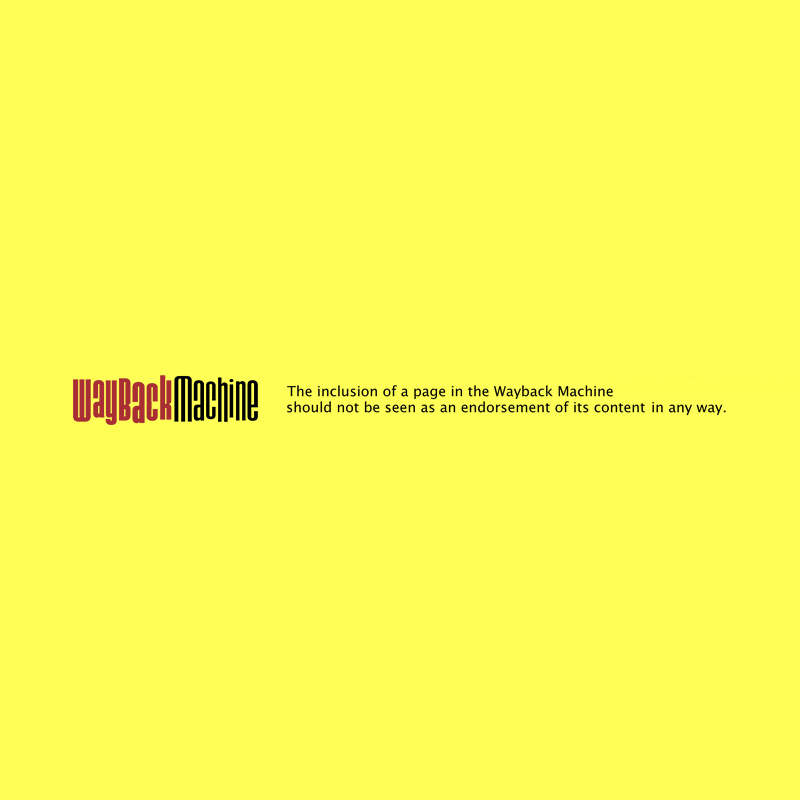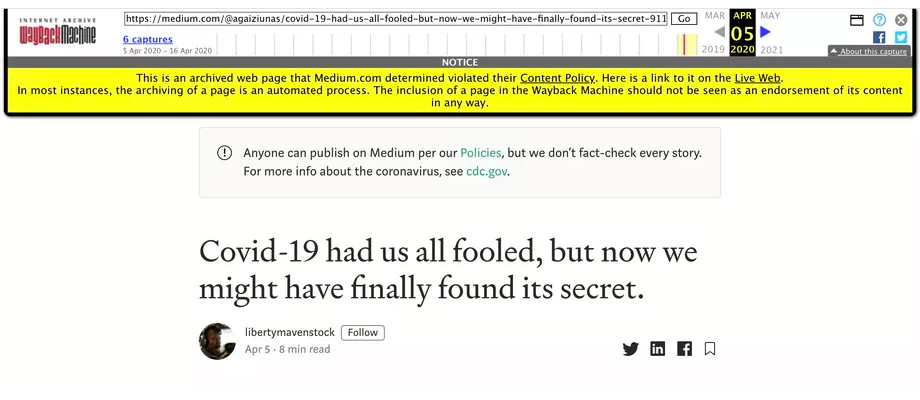
Everyday, countless of fake information are created and uploaded. And The Internet Archive wants to help stop them from plaguing the web.
Following reports that people were spreading fake 'COVID-19' coronavirus information through its Wayback Machine, The Internet Archive starts alerting users whenever they've clicked on some news stories that were debunked or have been taken down on the live web.
To notify its users, The Internet Archive's website starts including a bright banner on web posts that was removed because of delivering fake information.
Ramping up that effort, The Internet Archive's video archive also creates friction by making users log in to see some videos containing false information.
Examples include the reposted version of the conspiracy documentary Plandemic, as well as critical comments from Wayback Machine director Mark Graham who described the warnings to Zadrozny as an example of the “importance and value of context in archiving.”
As the world continues to battle the coronavirus pandemic, some news outlets purposefully or inadvertently shared fake news and samples of malware.
Because the amount can be so massive, they can bias information, and sometimes hide the solid truth away from sight. This biased information could be disinformation, misinformation or disinformation, depending on the motive of the author, but regardless, they are misleading at the very least.
From harm, hate, distrust, and doubt, threat actors are taking advantage of this crisis to spread whatever they have in mind.
And piggybacking the pandemic is one of the very best and fast way to do it.
Major platforms are doing what they can to help stop the spread of fake news. And The Internet Archive here is just one of them.

Archive.org has stood up against time, and memorialize many parts of the internet for research and leisure purposes. For that long time, it has been the invaluable resource for understanding the internet.
This isn't the first time The Internet Archive counters fake information on its platform.
In 2017, for example, it partnered with fact-checking organization First Draft News, which used its Wayback Machine to verify information online. It has also experimented with annotating misinformation on its TV archive.
But in April 2020, researcher Joan Donovan argued on a post on MIT Technology Review that the Archive was inadvertently helping some outlets and authors spread fake stories about the novel 'COVID-19' coronavirus because users could find and share archived copies of pages that had been banned or removed by social media platforms.
"Pandemic conspiracy theorists are using the Wayback Machine to promote 'zombie content' that evades moderators and fact-checkers," wrote Donovan.
After acknowledging that people have found a way to weaponize its Wayback Machine, Brewster Kahle's Internet Archive is taking steps to label posts found to be fake news, to prevent them from misleading its users.
While people may believe or not believe whatever is put in front of their faces, The Internet Archive has done its part of informing users, hoping that bad actors will be discourage is piggybacking its Wayback Machine for malicious purposes.
Previously, The Internet Archive was experiencing its highest usage traffic, peaking at 50Gbits/sec, which struggled its servers.